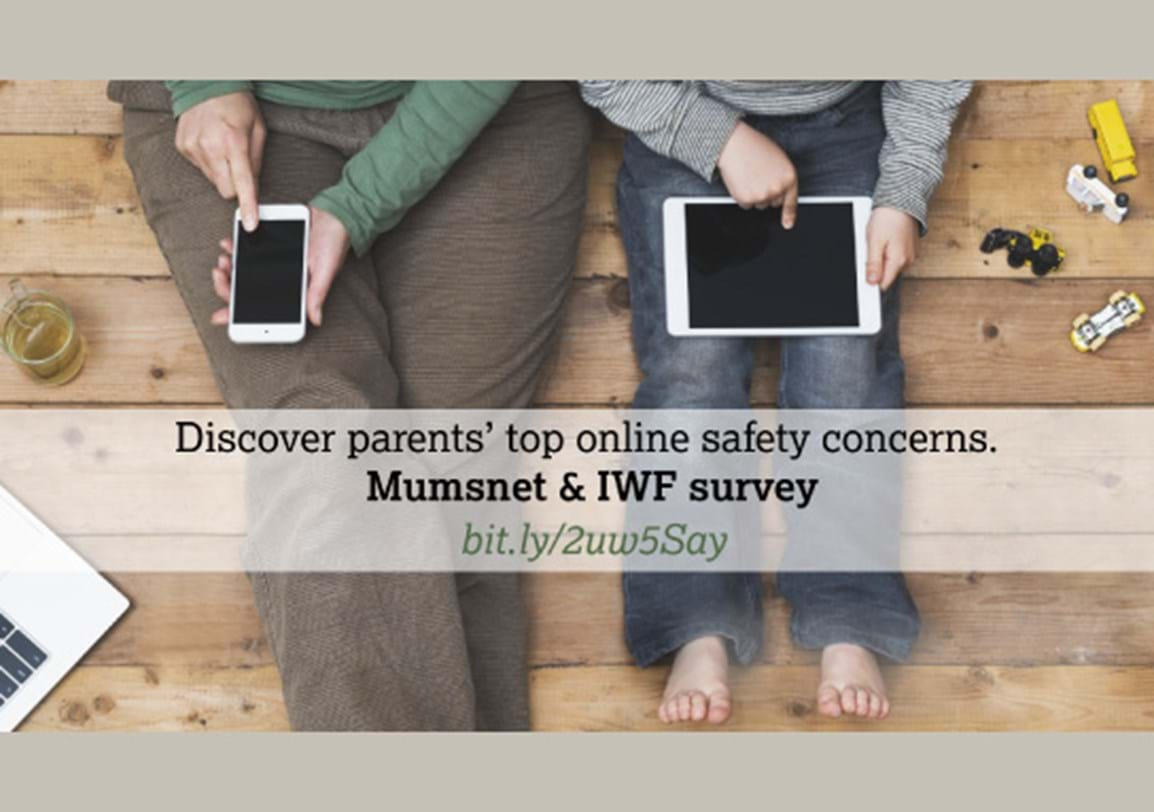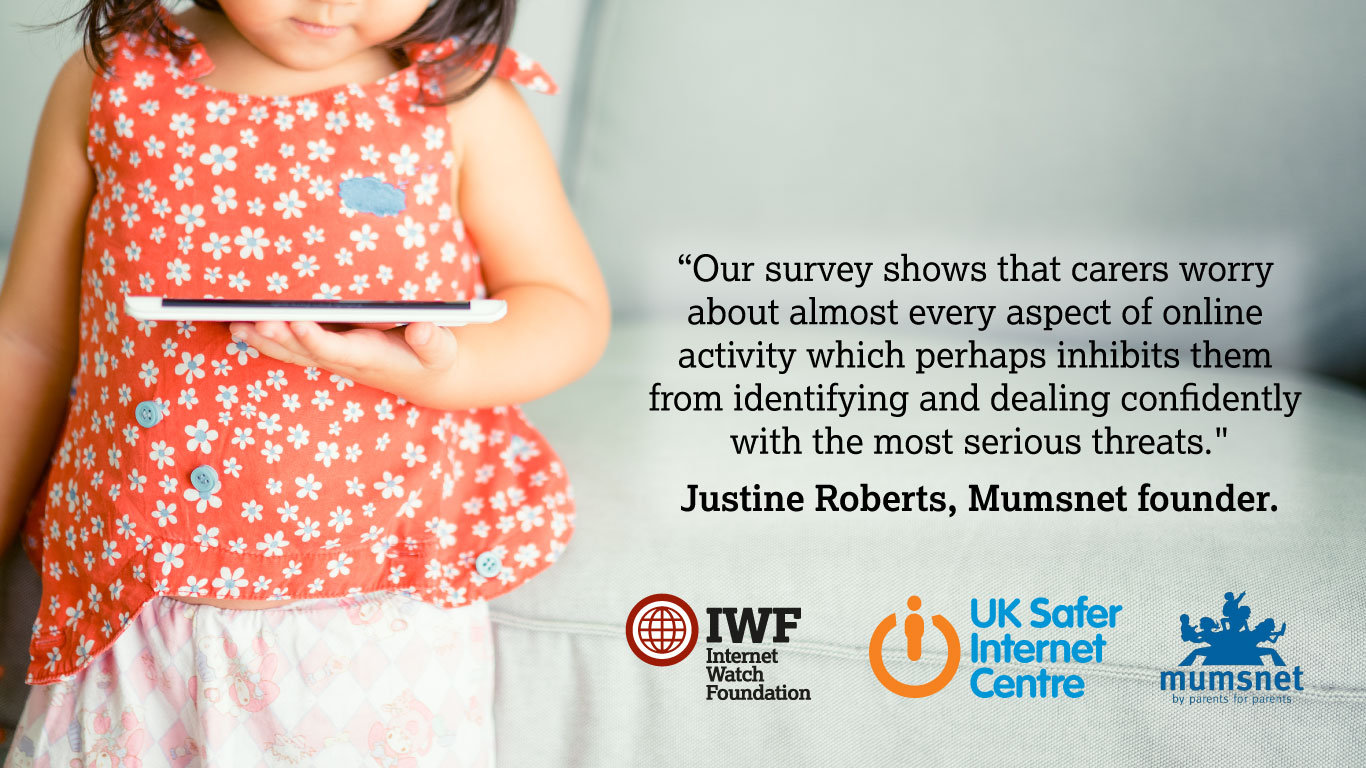
AI-generated videos of child sexual abuse a ‘stark vision of the future’
Real victims’ imagery used in highly realistic ‘deepfake’ AI-generated films

Published: Thu 19 Jul 2018
A new Mumsnet and Gransnet survey for the Internet Watch Foundation (a partner in the UK Safer Internet Centre) has uncovered the top concerns of parents and grandparents when it comes to children’s internet use, and lays out in detail how families in the UK approach concerns about children’s online safety, from aggressive trolling to child sexual exploitation.
When asked what worried or concerned them about internet use when it came to their own child, 78% of parents cited ‘being exposed to sexual imagery or pornography’, 75% cited ‘unpleasant or aggressive people, trolls and bad language’, 76% cited ‘bullying’, and 73% cited ‘violent imagery’. These concerns ranked above ‘grooming’ (cited by 69%) and ‘child sexual exploitation via video or photographs’ (61%).
The survey was commissioned ahead of the school summer holidays to raise awareness of child online safety. An Internet Watch Foundation (IWF) report from May 2018 highlighted the dangers of child sexual exploitation via livestreaming apps and described how legitimate internet platforms could be abused by offenders intent on contacting children. Parents and carers were warned that this could happen to any child who has access to livestreaming technology, so they should remain vigilant and know what technology their children are using.
Yet 16% of carers for under-fours and 28% of carers for four-to-six year olds surveyed by Mumsnet say the child they look after has used online video streaming without adult supervision - despite 81% of carers overall saying they classify video streaming without adult supervision as ‘risky’ or ‘extremely risky'.
One in five carers (22%) say the child they look after regularly or always uses the internet without adult supervision, including 7% of parents and grandparents caring for a child under four, 16% of carers for children aged four to six, and rising to 68% of carers for children aged between 13 and 18.
The survey indicates that carers are more comfortable talking to children about the risks of social networks and online gameplay than they are talking about video livestreaming - an online phenomenon that has only recently become widely popular in children’s apps and games. Most respondents (52%) say they have talked to their children about how to stay safe when playing online games with live chat, and 46% have spoken to their children about staying safe on social networks, but only one-third (34%) have spoken to their children about staying safe while using webcams and livestreaming.
Mumsnet founder Justine Roberts said: “As the summer holidays get underway, the truth is that unsupervised internet use by children is as unremarkable as unsupervised CBeebies watching; for many parents it’s the only way we can get anything done between the end of July and the beginning of September. It’s clear, though, that parents need more information about the risks of livestreaming, and guidance on how to address the issue with their children. Our survey shows that carers worry about almost every aspect of online activity which perhaps inhibits them from identifying and dealing confidently with the most serious threats.’

Susie Hargreaves OBE, CEO of IWF and a Director of the UK Safer Internet Centre, said: “Our report in May highlighted the need to raise awareness about online safety guidance for children, particularly where livestreaming apps are involved.
“The internet has great educational benefits for children, but like any technological tool it can be abused by offenders intent on harming children. Our role, as part of the UK Safer Internet Centre, is to help parents, carers and children stay safe online and just before the school summer holidays is the perfect time to share that message.”

Real victims’ imagery used in highly realistic ‘deepfake’ AI-generated films